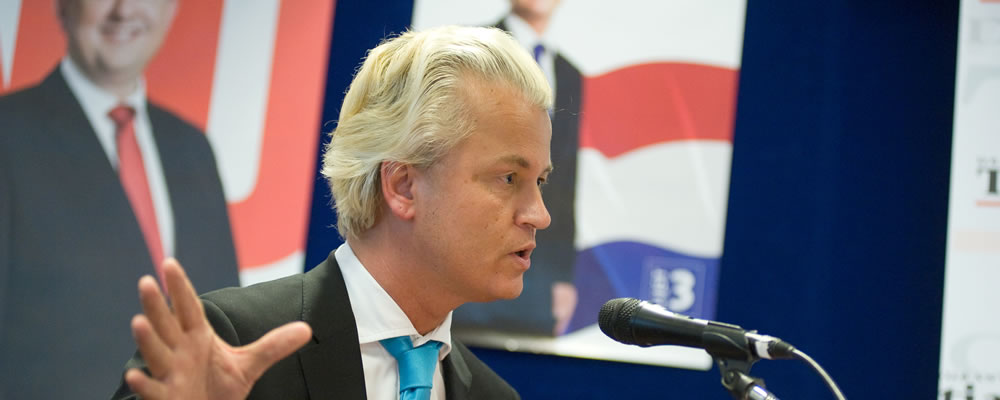The Pound Euro (GBP EUR) exchange rate rallied by around half a cent this morning as markets become increasingly nervous as the Netherlands goes to the polls.
All eyes are on the Netherlands this morning as the country votes in one of the most hotly contested domestic elections in living memory.
The usual humdrum Dutch political landscape has been thrown into chaos by the rise of populism across Europe and thrust the former fringe far-right candidate Geert Wilder into the limelight, with his PVV party now being almost neck and neck with Prime Minister Mark Rutte’s liberal VVD party.
Wilders is a major critic of the European Union and one of his major election pledges is to see the Netherlands leave the union in a so-called ‘Nexit’, an outcome that is particularly worrying for EUR investors.
Jordan Hiscott, chief trader at Ayondo Markets, said;
‘The Dutch elections could be yet another watershed moment for Europe, leading to further political fragmentation. With a country known for its liberal traditions, it’s been surprising that Geert Wilders and his PVV party have managed to assert themselves so much.’
While Wilders is not expected to be able to form a government as most parties have ruled out the possibility of working with him in a coalition, a strong performance will help to legitimise other populist movements across the continent, such as Marine Le Pen’s National Front party which is threatening to upset the established political parties in French elections next month.
Meanwhile the Pound ceded some of its gains this morning following the release of the UK’s latest labour report as UK wage growth continued to decline.
Data compiled by the Office for National Statistics (ONS) shows that Average Earnings tumbled from 2.6% to 2.2% in January, sliding at a faster pace than expected and declining for the second consecutive month.
John Hawksworth, chief economist at PwC said;
‘There was less good news on average earnings growth, which fell back to just 2.2% in the three months to January. With consumer price inflation already up to 1.8% in January and set to rise further over the coming months, real earnings growth could be back in negative territory by the end of 2017.’
However Sterling’s losses were stemmed slight by the jobless figures as the ONS reported that the UK Unemployment rate dropped to 4.7% over the same period, its lowest reading since 1975.
The decline suggests that the vote to leave the EU has not had a negative impact on the UK’s labour market yet and will help to alleviate some of the recent Brexit jitters that have dragged on the Pound.
However, with Prime Minister Theresa May expected to trigger Article 50 by the end of the month (kicking off two years of uncertainty as the UK government negotiates its exit from the EU) it is likely that GBP EUR will remained strained over the next couple of weeks.
The Bank of England’s (BoE) rate decision could also hamper the Pound in trading tomorrow, with the central bank expected to vote to leave interest rates at a record low of 0.25% despite a notable uptick in inflation.
Meanwhile the Euro may tick higher on Thursday as the latest Eurozone CPI figures are expected to show that the inflation rate rose from 1.8% to the European Central Bank’s (ECB) target of 2% in February, likely adding to recent speculation that the bank may being discussing tightening its monetary policies.
Current Interbank Exchange Rates
At the time of writing the GBP EUR exchange rate was trending around 1.14 and the EUR GBP exchange rate was trending around 0.87.



